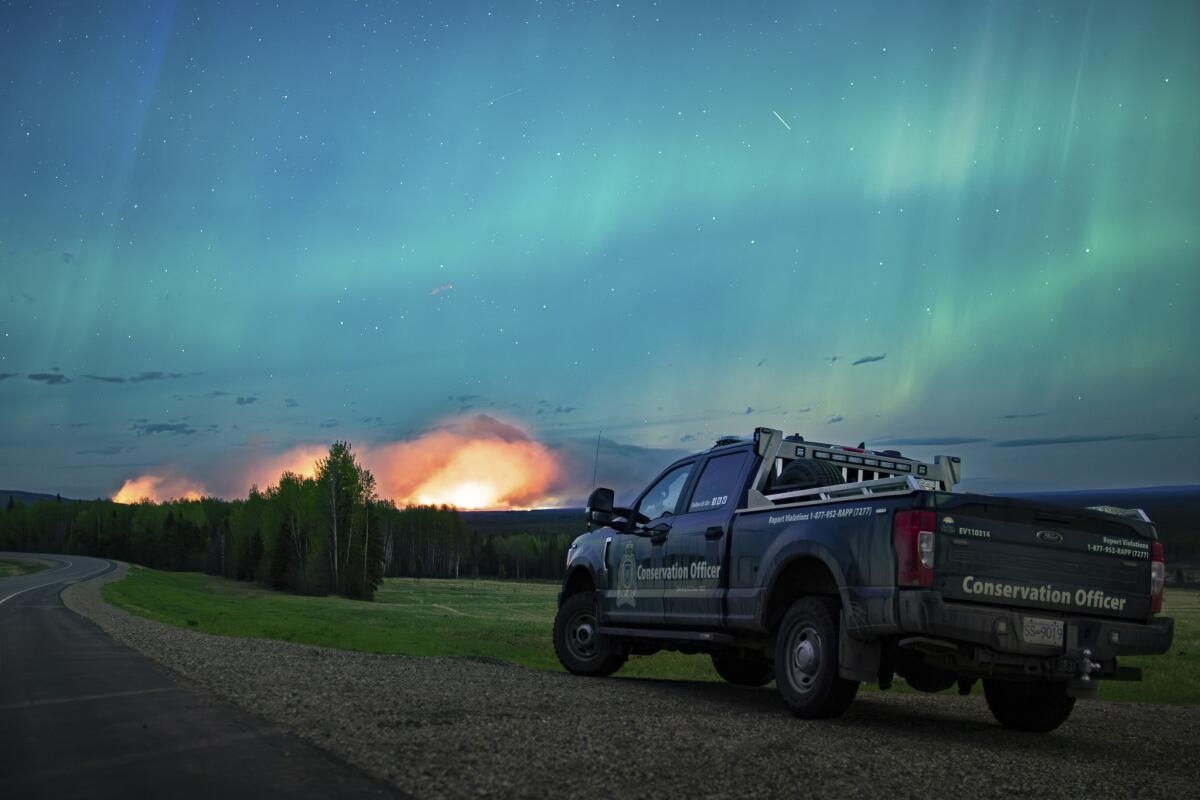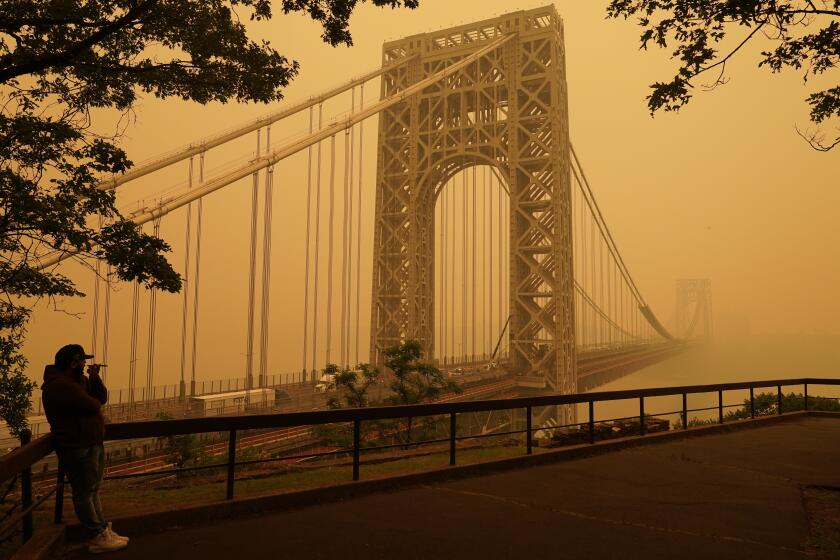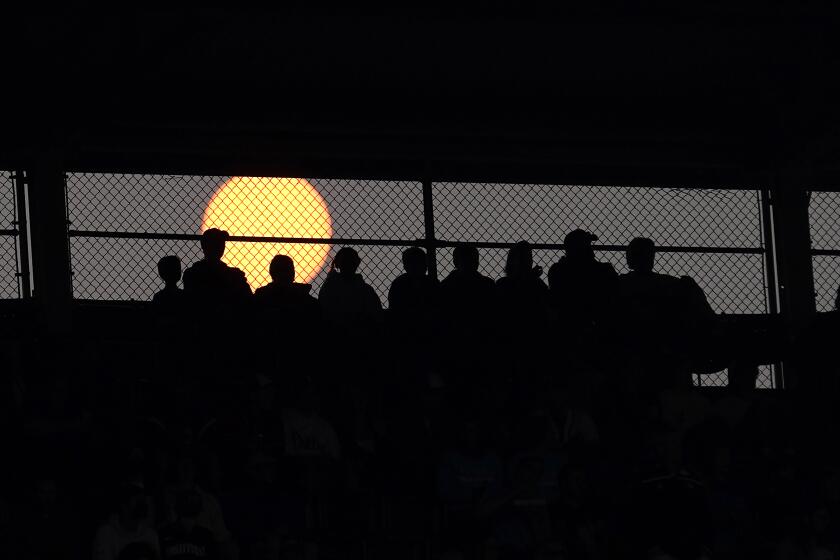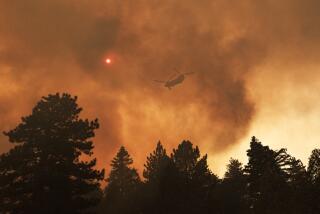Canadian wildfire smoke chokes upper Midwest for second straight year

- Share via
MADISON, Wis. — Smoke from Canadian wildfires has prompted health warnings across the upper Midwest for the second straight year.
Fires raging in British Columbia and Alberta sent the haze over parts of Montana, the Dakotas, Minnesota and Wisconsin on Sunday, lingering into Monday morning.
The Minnesota Pollution Control Agency issued its first air quality alert of the season for the entire state on Sunday. The agency said pollution levels will be unhealthy for everyone. The agency urged people to remain indoors and avoid heavy exertion outdoors until the warning expired at noon Monday.
The Wisconsin Department of Natural Resources issued advisories for multiple counties across the state’s northern two-thirds on Sunday, warning that air quality is unhealthy for sensitive people. The advisories were set to end at noon on Monday as well.
Smoke from Canadian wildfires is pouring into the U.S. East Coast and Midwest and covering the capitals of both nations in an unhealthy haze.
The smoke left the skies over Michigan’s Upper Peninsula hazy on Monday. Some people reported smelling smoke, said Joe Phillips, a National Weather Service meteorologist in Marquette.
Most of the smoke was expected to linger over Minnesota, Wisconsin and northern Michigan, but some could drift as far south as Iowa and Chicago, leaving skies looking milky by late Tuesday or early Wednesday, said Rafal Ogorek, a meteorologist in the National Weather Service’s Chicago office.
Nearly 90 fires are burning in Canada, according to the Canadian government’s National Wildland Fire Situation report. A fire raging near Fort Nelson in British Columbia’s far northeastern corner has forced evacuations.
Most of the smoke is hanging between a mile and 2 miles above the ground, where prevailing winds are driving it south and east, Ogorek said.
A haze of unhealthful air hung over the Great Lakes region in a reminder of the fires that are still raging in Canada and pushing smoke toward the U.S.
A record number of wildfires in 2023 forced more than 235,000 people across Canada to evacuate and sent choking smoke into parts of the U.S., prompting hazy skies and health advisories in multiple U.S. cities.
An analysis by World Weather Attribution, an initiative that aims to quickly evaluate the role of climate change in the aftermath of extreme weather events, found climate change more than doubled the chances of hot, dry weather that helped fuel the fire season.
The chances of more wildfires igniting this summer appear high. Northeastern British Columbia, northwestern Alberta and the southern Northwest Territories are suffering from an intense drought, meaning lightning strikes could trigger fires that grow quickly, according the Canadian National Wildland Fire Situation report.
The British Columbia Wildfire Service said the blaze was burning 1.2 miles from Fort Nelson. More than 3,000 people have evacuated, and the 100 remaining are urged to leave.
Loretta Mickley, co-leader of Harvard University’s Atmospheric Chemistry Modeling Group, said her group did papers in 2013 and 2015 looking at fire activity and ecosystems with an eye toward the future. She said increasing fire activity is consistent with a warming climate.
Drought conditions look to be less severe in Ontario and Quebec in the coming months, but temperatures are expected to be higher than normal, and it’s difficult to predict if the moisture will cancel out the heat, she said.
“What will happen this summer? It depends on what the meteorology is like today and what happened over the winter,” she said. “In some regions a lot of rain in winter led to abundant vegetation. If that is followed by dryness or a drought then all that vegetation is ready to be burnt up and provide fuel to the fires.”
Richmond writes for the Associated Press. AP writers Rick Callahan in Indianapolis, Rob Gillies in Toronto and Steve Karnowski in St. Paul, Minn., contributed to this report.
More to Read
Sign up for Essential California
The most important California stories and recommendations in your inbox every morning.
You may occasionally receive promotional content from the Los Angeles Times.













